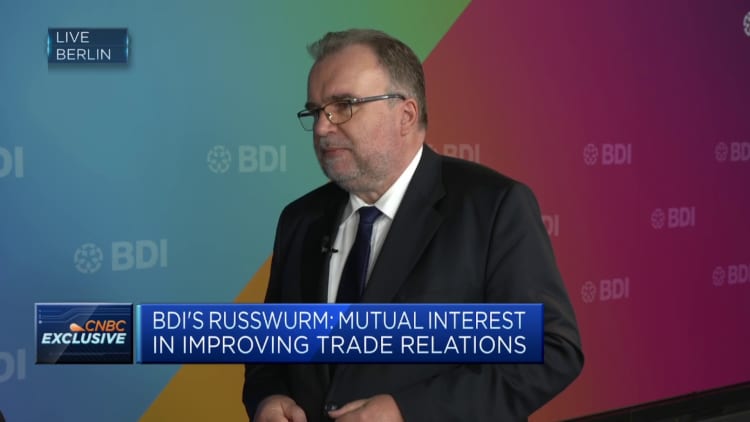The sun sets behind the lignite-fired power plant of Boxberg on August 18, 2023 in Neuliebel, Germany.
Florian Gaertner | Photothek | Getty Images
Germany needs to implement structural changes if it wants to prevent a political shift to the right, Commerzbank CEO Manfred Knof told CNBC at the Handelsblatt Banking Summit 2023.
When asked if he was concerned that the rise of right-wing parties in Germany was a potential threat to the German economy, Knof said the population is unhappy and could see that structural problems aren’t being solved.
“For a long time we were pretty much in good shape and maybe asleep and not ready to modernize and tackle the structural necessary changes and modernizations,” Knof said.
“I think … an agenda could also help and that will then be bringing the population back and of course democracy is not self-evident and we need to fight for it and we need to defend it.”
Germany’s Federal Ministry for Economic Affairs and Climate Action did not immediately respond to CNBC’s request for comment.
The right-leaning Alternative for Germany party won a district council election for the first time in June, and many are looking to see how the group performs in upcoming local elections in the state of Bavaria.
Knof also said Germany’s small-to-medium-sized companies, known as the Mittelstand, were reluctant to invest in their own country because of the structural issues in Europe’s largest economy.
“The situation is challenging ahead and that’s what we see also in the German SMEs, they are resilient but we see a lack of willingness to invest and that should concern us going forward,” Knof said.
“We need more activities and … [a] better framework for the German SMEs to invest in this country,” he added.
The comments reflect those made in June by Siegfried Russwurm, head of the German Industry Federation, who suggested that energy prices were driving companies to move elsewhere.

In June CNBC’s Annette Weisbach asked Russwurm whether the ongoing energy situation was “bad enough” for companies to relocate, to which he responded: “It is indeed.”
“A lot of family-owned companies … have very operational plans to relocate,” Russwurm said, adding that the current business conditions in Germany had created a “cocktail” of obstacles for companies.

Hans-Werner Sinn, president emeritus at the Ifo institute, made similar comments about the German population leaning to the right politically, particularly in terms of the government’s approach to sustainability, on Sept. 4, speaking to CNBC from the Ambrosetti Forum in Italy.
“There is a backlash clearly … The population is now moving to the right,” Sinn said.
Germany is attempting to implement its Energy Efficiency Strategy 2050, which includes cutting its primary energy use by 2030, but the move has garnered criticism as Russia’s full-scale invasion of Ukraine drove energy prices up across Europe.


